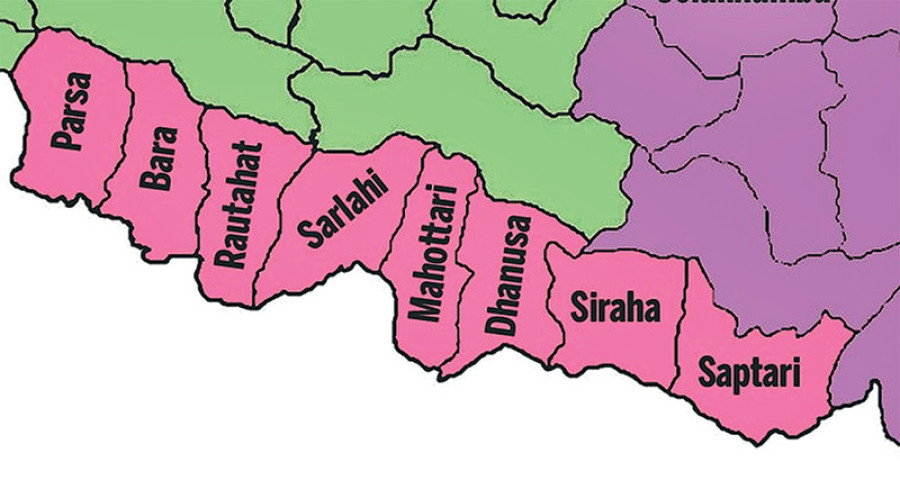National
Delayed polls to hinder dev works in Province 2
Development projects in Province 2 will be pushed back at least a few months, with the government restricting the chief executives from spending the development budget in the local federal units of the eight districts where the polls are yet to be held.
Prithvi Man Shrestha
Development projects in Province 2 will be pushed back at least a few months, with the government restricting the chief executives from spending the development budget in the local federal units of the eight districts where the polls are yet to be held.
The Guideline on Planning and Budget Formulation at the Local Level, issued by the Ministry of Federal Affairs and Local Development on June 23, instructs the local units where the elections have not taken place to spend budget only for salary and office operations, and multi-year projects inherited from the central government.
People’s representatives have been elected in provinces 1, 3, 4, 5, 6 and 7 in the polls held on May 14 and June 28. But the local elections in Province 2 have been scheduled for a third phase on September 18.
Ministry officials said the chief executives were denied full authority to spend the development budget, which is the responsibility of the municipal and village councils.
The delay is likely to hinder development works in a province where the human development index is below the national average. According to the Nepal Human Development Report-2014, indicators in the eight districts of Province 2—Saptari, Siraha, Dhanusha, Mahottari, Sarlahi, Rautahat, Bara and Parsa—are below the average national score of 0.490.
The province will continue to lag behind others for failing to spend the development funds, said Shankar Sharma, former vice-chairman of the National Planning Commission. “A better option for the government would be to authorise the chief executives there to spend development budget at least for projects that were being implemented by the erstwhile local bodies.”
The decision comes at a time when the government is accused of attempting to constrain the constitutional authority of the local government through laws, regulations and directives.
According to experts, even though there are no local councils in Province 2,
officials could work on tender for projects so that they are implemented soon after the local representatives are elected.
There is room for elected representatives to introduce supplementary budget later. Officials said the expenditures for administrative works and salary will be accommodated in supplementary budget to be presented by elected office bearers.
Dinesh Thapaliya, secretary at the Local Development Ministry, said even the local units with elected officials might have to present supplementary budgets. “Since elections have just been completed in many local units, there is no time for budget preparation. The ad-hoc budgets presented now will be replaced by supplementary budgets,” he clarified.
The ministry had asked the local units to present their fiscal estimates by Sunday but many local units have failed to do so. They will have to present the budget by July 15—the last day of the current fiscal year, according to officials.




 9.7°C Kathmandu
9.7°C Kathmandu














